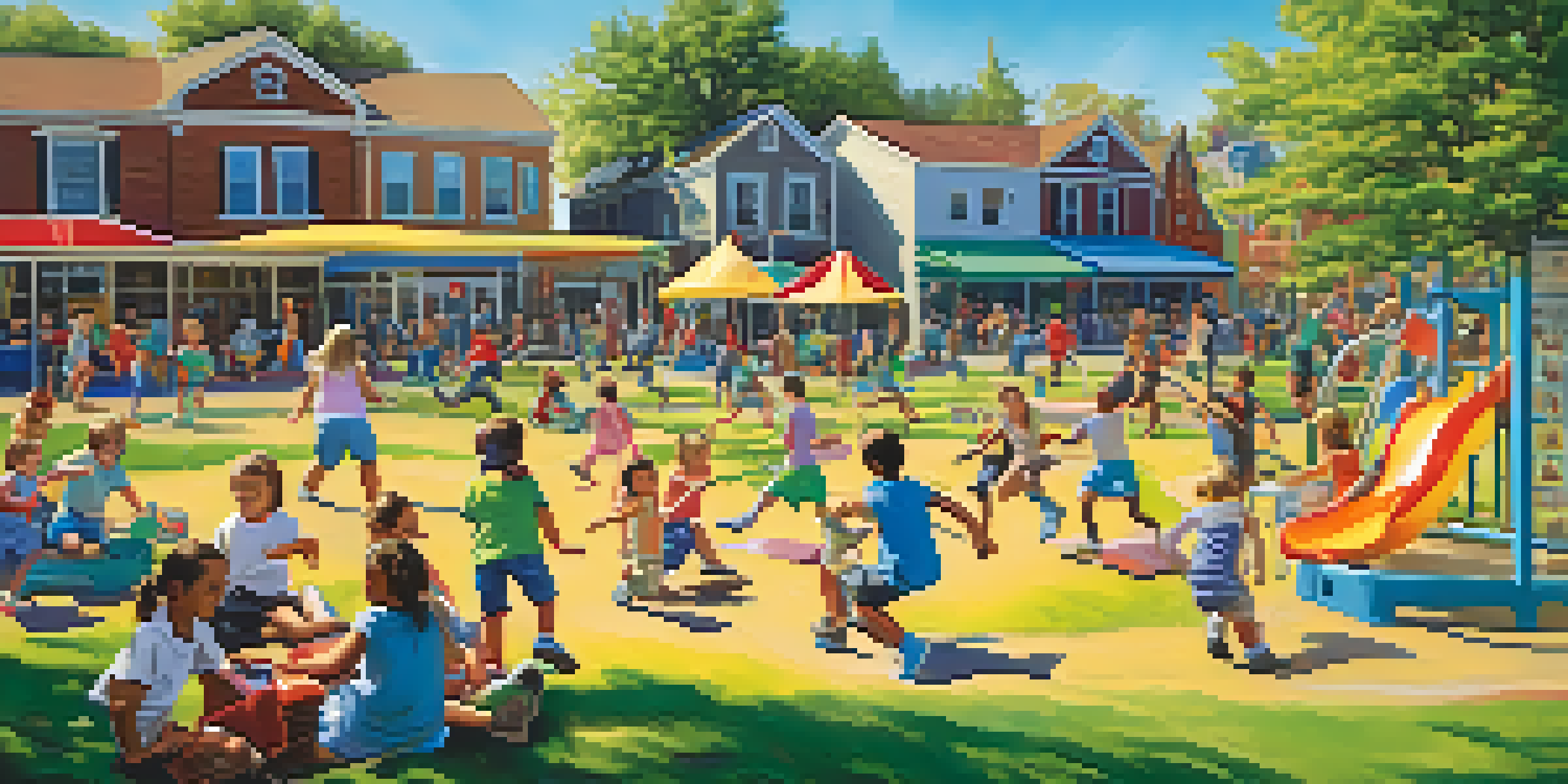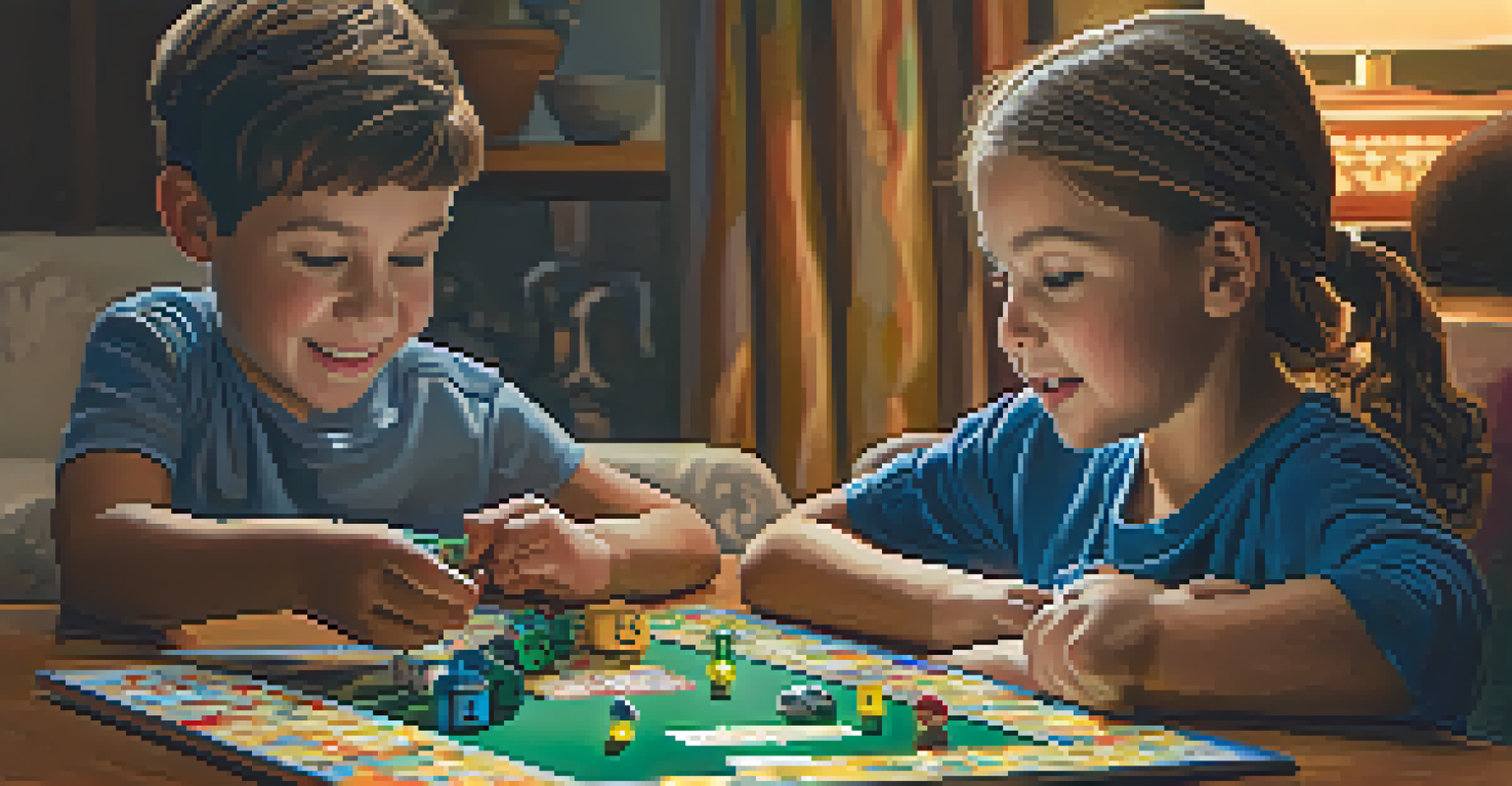The Role of Play in Self-Regulation and Impulse Control

What is Self-Regulation and Impulse Control?
Self-regulation is the ability to manage your emotions, thoughts, and behaviors in various situations. It allows individuals to respond appropriately rather than react impulsively. Impulse control, a key component of self-regulation, helps us pause and think before acting, which is crucial for making informed decisions.
Play is the highest form of research.
Think of self-regulation as a traffic light. A green light means you can go ahead, while a red light means you need to stop and assess the situation. This process is essential in everyday life, from managing stress to maintaining healthy relationships.
Both self-regulation and impulse control are vital skills for children and adults alike, influencing everything from academic success to personal well-being. Understanding these concepts is the first step toward fostering them through play.
The Science Behind Play and Development
Play is not just a fun activity; it’s an essential part of child development. According to research, engaging in play helps children develop a range of skills, including social, cognitive, and emotional competencies. These skills are foundational for self-regulation and impulse control.

When children play, they encounter various scenarios that require them to make decisions, solve problems, and interact with others. For example, playing a game of tag requires kids to regulate their speed and reactions to avoid being 'caught'.
Self-Regulation Fuels Growth
Self-regulation and impulse control are crucial skills that help individuals manage their emotions and behaviors effectively.
Moreover, play provides a safe environment for children to experiment with their behaviors and learn from their mistakes. This learning process is critical for developing the self-control needed in more complex situations later in life.
Types of Play That Promote Self-Regulation
Different types of play can significantly impact self-regulation and impulse control. Structured play, such as board games, encourages children to follow rules and take turns, fostering patience and self-discipline. Unstructured play, like free play in a park, allows for creativity and decision-making, which also enhances self-regulation skills.
Children learn as they play. Most importantly, in play, children learn how to learn.
Role-playing games are particularly effective in teaching impulse control. For instance, when children pretend to be characters in a story, they learn to navigate social interactions and understand consequences without real-world repercussions.
Both types of play provide valuable lessons in self-control and emotional management, empowering children to handle their impulses effectively as they grow.
The Role of Social Play in Emotional Regulation
Social play, involving interactions with peers, is a powerful tool for emotional regulation. When children engage in group activities, they learn to negotiate, cooperate, and empathize with others. These experiences are crucial for developing the ability to manage their emotions and impulses in social contexts.
For example, during a game of capture the flag, players must communicate and strategize together, which requires emotional regulation to handle the excitement and frustration that may arise. Such scenarios teach children to recognize their feelings and the feelings of others.
Play Enhances Learning Skills
Engaging in various types of play fosters essential social, cognitive, and emotional skills necessary for self-regulation.
Additionally, social play helps children practice conflict resolution. Learning how to navigate disagreements without resorting to impulsive behavior is a key aspect of self-regulation that benefits them throughout life.
How Parents Can Foster Play for Self-Regulation
Parents play a crucial role in facilitating play that enhances self-regulation. By providing opportunities for both structured and unstructured play, parents can help children practice these essential skills. Setting aside time for family games or playdates can significantly impact a child’s emotional and social development.
Moreover, parents can model self-regulation during playtime. For instance, showing patience while waiting for a turn in a game teaches children the value of self-control. Discussing feelings and reactions during play can also deepen their understanding of emotional management.
By being actively involved in their children's play, parents can create a supportive environment that encourages the growth of self-regulation and impulse control.
The Long-Term Benefits of Play on Self-Regulation
The benefits of play extend far beyond childhood, impacting self-regulation skills into adulthood. Adults who engaged in play as children often exhibit better emotional control, decision-making abilities, and interpersonal skills. These traits are invaluable in navigating complex life situations and maintaining healthy relationships.
For instance, adults who learned to manage their impulses during childhood through play are more likely to handle stress effectively and make thoughtful decisions in their personal and professional lives. This can lead to improved career prospects and personal satisfaction.
Long-Term Benefits of Play
Play not only supports childhood development but also lays the groundwork for better emotional control and decision-making in adulthood.
Ultimately, encouraging play from an early age can lay a strong foundation for lifelong self-regulation and impulse control, benefiting individuals and society as a whole.
Conclusion: Embracing Play as Essential for Growth
In conclusion, play is not just a leisure activity; it is a vital component of learning self-regulation and impulse control. By engaging in various types of play, children develop essential skills that will serve them throughout life. From social interactions to problem-solving, play provides a rich context for emotional and behavioral growth.
As parents, educators, and caregivers, it’s important to recognize the value of play and create environments that foster these experiences. Whether through structured activities or free play, every moment spent playing is a step toward better self-regulation.

By embracing play as an essential part of growth, we equip the next generation with the tools they need to navigate life’s challenges with confidence and composure.